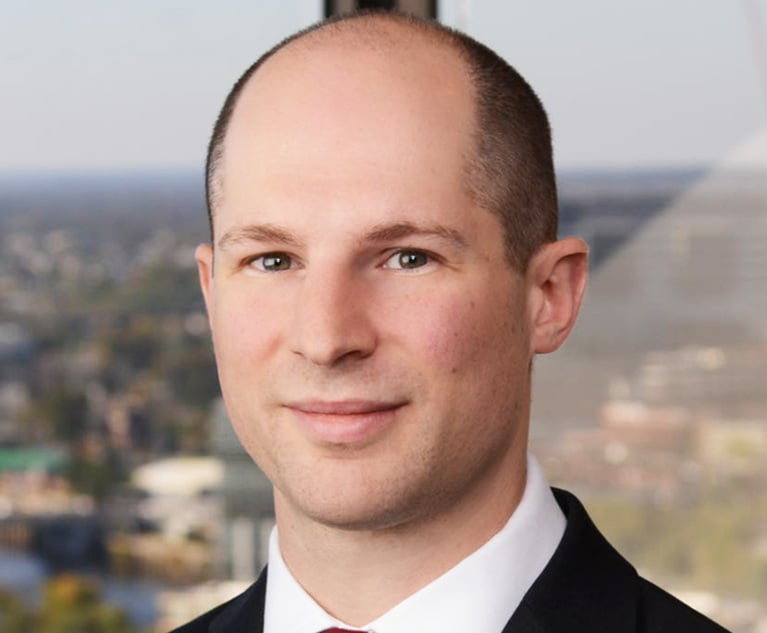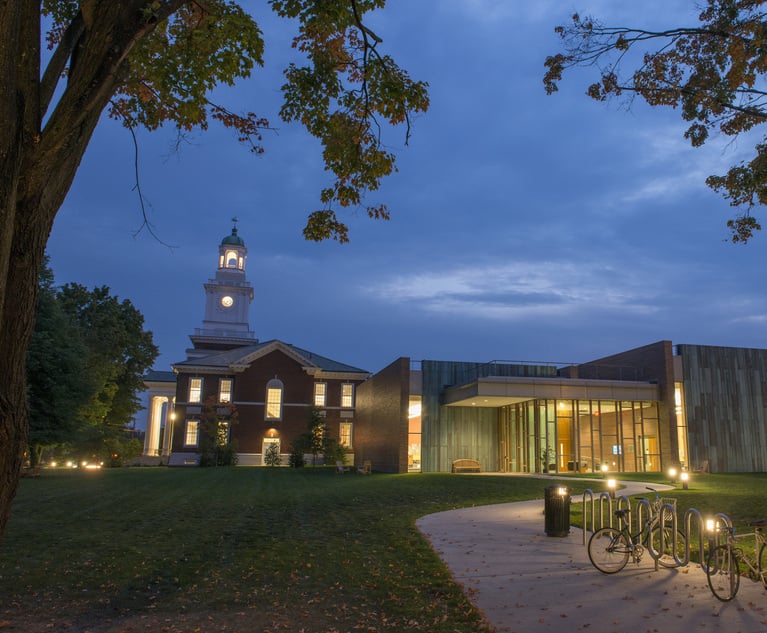Superior Court Reverses Transfer of Toddler Wrongful Death Case
Plaintiffs "did not have the burden to prove that Lehigh County was oppressive to certain individuals, and such evidence was irrelevant to the inquiry herein," the court said.
January 24, 2018 at 04:57 PM
3 minute read

The Pennsylvania Superior Court has overturned a venue transfer, from Philadelphia to Lehigh County court, in a wrongful death case involving the alleged misdiagnosis and overdosing of a 17-month-old child.
According to the court, the child, Gianna Tomlinson, went to Lehigh Valley Hospital with difficulty breathing. She was diagnosed with a respiratory infection, but on subsequent visit to Sacred Heart Hospital, was diagnosed with an enlarged heart. Tomlinson was then flown by helicopter to the Children's Hospital of Philadelphia, where she was allegedly given a lethal overdose of sedatives.
The ruling involved two of several defendants in the case: Sacred Heart pediatric neonatologist Dr. Andrew Unger, and the hospital's risk manager, Michele Coleman, who claimed a multi-week trial in Philadelphia would be oppressive.
According to Superior Court Judge Mary Jane Bowes' opinion, Unger claimed that since he was the director of pediatrics and one of very few neonatologists at Sacred Heart, his absence would be detrimental to patients. If he were able to attend trial in Lehigh County, he could remain on call, he argued. And Coleman argued that her absence for a trial in Philadelphia would impact the operation of the hospital.
Unger, Coleman and Lehigh Valley Hospital filed motions to change venue. The motions to transfer were granted by the Philadelphia judge. Tomlinson's parents and the administrators of her estate, Paige Moody and Khalil Tomlinson, argued that the trial court improperly balanced the factors of convenience in favor of Lehigh, since most of the witnesses and evidence are in Philadelphia.
The Superior Court disagreed with the trial court's reasoning that adjudicating the case in Philadelphia court would be vexatious, especially since Children's Hospital was a defendant.
Additionally, “We find merit in the administrators' contention that the trial court did not apply the proper legal standard in ruling on the petition to transfer,” Bowes said. “In faulting administrators for not introducing specific evidence of individuals in Philadelphia who would be oppressed by a trial in Lehigh County, the court missed the mark. Administrators did not have the burden to prove that Lehigh County was oppressive to certain individuals, and such evidence was irrelevant to the inquiry herein.”
She continued, “The trial court compounded its error by concluding that any assumption that trial against Children's Hospital of Philadelphia would involve witnesses and evidence from Philadelphia did not 'outweigh the record established by the defendants.' In concluding that 'the overall weight of [the defendants'] affidavits, compared to the bald assertion by plaintiff that possible, potential Philadelphia witnesses may find Lehigh County oppressive, sufficiently established the basis to transfer the matter to Lehigh County[,]' the court improperly engaged in a balancing test.”
Joel Feller of Ross Feller Casey represents the plaintiffs.
In an email, Feller said, “We are pleased that the Superior Court reversed the trial court's ruling to now allow this very significant infant death case to be litigated in Philadelphia County where it was appropriately filed initially. This well-reasoned appellate decision is important in that it will serve to prevent trial courts throughout the Commonwealth from improperly transferring cases on forum non conveniens grounds and reinforces the long-established deference granted to a plaintiff in Pennsylvania to bring a cause of action for medical malpractice in any procedurally proper venue of his or her choosing.”
Howard Stevens of Gross McGinley represents Lehigh Valley and did not respond to a request for comment.
This content has been archived. It is available through our partners, LexisNexis® and Bloomberg Law.
To view this content, please continue to their sites.
Not a Lexis Subscriber?
Subscribe Now
Not a Bloomberg Law Subscriber?
Subscribe Now
NOT FOR REPRINT
© 2024 ALM Global, LLC, All Rights Reserved. Request academic re-use from www.copyright.com. All other uses, submit a request to [email protected]. For more information visit Asset & Logo Licensing.
You Might Like
View All
While Data Breaches May Lead to Years of Legal Battles, Cyberattacks Can Be Prevented
4 minute read
The Growing PFAS Morass: Why Insurance Should Cover These Products Liability Claims
9 minute read
Trending Stories
- 1Commission Confirms Three of Newsom's Appellate Court Picks
- 2Judge Grants Special Counsel's Motion, Dismisses Criminal Case Against Trump Without Prejudice
- 3GEICO, Travelers to Pay NY $11.3M for Cybersecurity Breaches
- 4'Professional Misconduct': Maryland Supreme Court Disbars 86-Year-Old Attorney
- 5Capital Markets Partners Expect IPO Resurgence During Trump Administration
Who Got The Work
Michael G. Bongiorno, Andrew Scott Dulberg and Elizabeth E. Driscoll from Wilmer Cutler Pickering Hale and Dorr have stepped in to represent Symbotic Inc., an A.I.-enabled technology platform that focuses on increasing supply chain efficiency, and other defendants in a pending shareholder derivative lawsuit. The case, filed Oct. 2 in Massachusetts District Court by the Brown Law Firm on behalf of Stephen Austen, accuses certain officers and directors of misleading investors in regard to Symbotic's potential for margin growth by failing to disclose that the company was not equipped to timely deploy its systems or manage expenses through project delays. The case, assigned to U.S. District Judge Nathaniel M. Gorton, is 1:24-cv-12522, Austen v. Cohen et al.
Who Got The Work
Edmund Polubinski and Marie Killmond of Davis Polk & Wardwell have entered appearances for data platform software development company MongoDB and other defendants in a pending shareholder derivative lawsuit. The action, filed Oct. 7 in New York Southern District Court by the Brown Law Firm, accuses the company's directors and/or officers of falsely expressing confidence in the company’s restructuring of its sales incentive plan and downplaying the severity of decreases in its upfront commitments. The case is 1:24-cv-07594, Roy v. Ittycheria et al.
Who Got The Work
Amy O. Bruchs and Kurt F. Ellison of Michael Best & Friedrich have entered appearances for Epic Systems Corp. in a pending employment discrimination lawsuit. The suit was filed Sept. 7 in Wisconsin Western District Court by Levine Eisberner LLC and Siri & Glimstad on behalf of a project manager who claims that he was wrongfully terminated after applying for a religious exemption to the defendant's COVID-19 vaccine mandate. The case, assigned to U.S. Magistrate Judge Anita Marie Boor, is 3:24-cv-00630, Secker, Nathan v. Epic Systems Corporation.
Who Got The Work
David X. Sullivan, Thomas J. Finn and Gregory A. Hall from McCarter & English have entered appearances for Sunrun Installation Services in a pending civil rights lawsuit. The complaint was filed Sept. 4 in Connecticut District Court by attorney Robert M. Berke on behalf of former employee George Edward Steins, who was arrested and charged with employing an unregistered home improvement salesperson. The complaint alleges that had Sunrun informed the Connecticut Department of Consumer Protection that the plaintiff's employment had ended in 2017 and that he no longer held Sunrun's home improvement contractor license, he would not have been hit with charges, which were dismissed in May 2024. The case, assigned to U.S. District Judge Jeffrey A. Meyer, is 3:24-cv-01423, Steins v. Sunrun, Inc. et al.
Who Got The Work
Greenberg Traurig shareholder Joshua L. Raskin has entered an appearance for boohoo.com UK Ltd. in a pending patent infringement lawsuit. The suit, filed Sept. 3 in Texas Eastern District Court by Rozier Hardt McDonough on behalf of Alto Dynamics, asserts five patents related to an online shopping platform. The case, assigned to U.S. District Judge Rodney Gilstrap, is 2:24-cv-00719, Alto Dynamics, LLC v. boohoo.com UK Limited.
Featured Firms
Law Offices of Gary Martin Hays & Associates, P.C.
(470) 294-1674
Law Offices of Mark E. Salomone
(857) 444-6468
Smith & Hassler
(713) 739-1250






